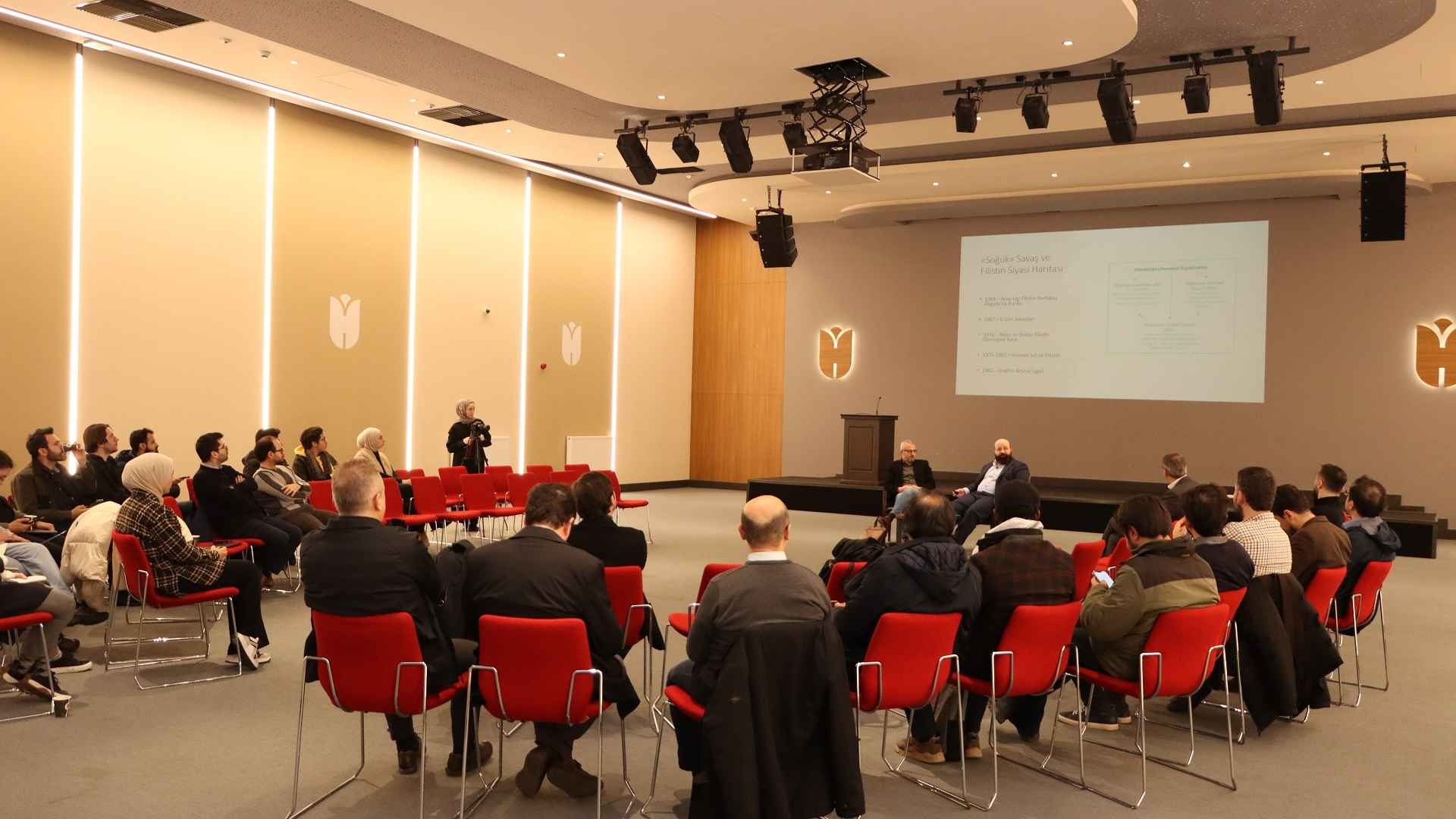


Ibn Haldun University academics held Wednesday Meetings with the participation of our Rector Prof. Atilla Arkan on December 13, 2023. The traditional event, in which many academics from various departments of our university participated actively and online, discussed the political transformation of the Palestinian - Israeli conflict between occupation and resistance.
In the meeting moderated by Assoc. Ali Aslan, Head of the Department of Political Science and International Relations, Dr. Ahmet Yusuf Özdemir, Lecturer at the Department of Politics and International Relations, made a chronological and detailed presentation on the Palestine - Israel issue. In his presentation, he touched on vital points such as the origins of the conflict, the cold war period and the political map of Palestine, the possibilities of a two-state solution, the causality of October 7 and what the situation of the conflict will be after that, and drew a road map for the academic participants on where to start understanding the Palestine - Israel conflict.
In 1897, at the First Jewish Congress held in Basel, Switzerland, under the leadership of Theodor Herzl, the phrase "State of Israel" was coined for the first time, and Dr. Özdemir talked about the background of the attacks launched by Hamas in reference to the 1973 Yom Kippur War or the Arab-Israeli War or October 7, the first day of the October War. Dr. Özdemir shared with the participants his predictions about where the conflicts, in which civilians, including babies, women and children, are currently being brutally and inhumanely killed, will stop and what kind of conclusion can be reached on each possibility after the hot war.
Where It Ends?
Stating that after the October 7 attack, Israel turned this attack into an excuse and embarked on a policy of total destruction, Özdemir defined the occupation movement that Israel launched first from the air and shortly afterwards from the ground as one of the most massacres that the 21st century has ever seen.
Dr. Özdemir added that it is possible to talk about several scenarios about how and where the process will end, which is the ultimate question on everyone's minds, and stated that the first of these is actually a Palestinian project in which only Jews live on the land, as clearly seen in the idea of Zionism, and that Israel's medium and long-term goal is to force those in Gaza to exile to Egypt's Sinai Peninsula and those in the West Bank to Jordan and the East Bank.
Özdemir emphasized that the second scenario is for the Palestinian armed resistance groups, especially Hamas, which Israel sees as a threat to itself, to leave Gaza, but in addition to the question of how this is logistically possible, another question mark is how to distinguish between Palestinian civilians and fighters. Dr. Özdemir underlined that it should be emphasized that a version in which Palestine is advantageous and Israel settles for a new status quo is always on the table, and concluded his presentation by stating that in the light of all these possibilities, it would not be wrong to state that we cannot talk about world peace without the establishment of a new and just order in Palestine and that we have a long and tiring marathon ahead of us for this, and he concluded his presentation.
Rector Prof. Atilla Arkan and the academic participants also had the opportunity to ask Özdemir questions about the Palestinian-Israeli issue during the presentation.